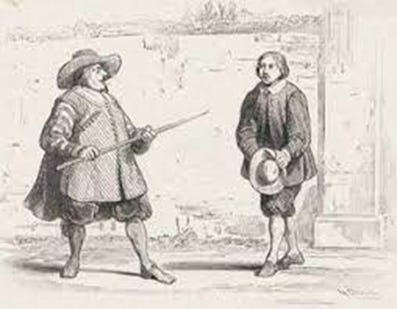The Betrothed by Alessandro Manzoni: Day 44
Chapter 34 (through p.574: “the living were left.”)
“But what city was this?”
“As for how to enter the city, Renzo had heard something about strict orders not to let anyone enter its gates without a health certificate. But he’d also heard that a resourceful man who seized the moment could easily evade this decree. And he was right.”
The first sentence of this chapter reads as if it were completing the last paragraph of the previous chapter. Renzo is going to need all the resourcefulness in his arsenal to make it through Milan and find Lucia.
This was written long before we first heard the term “social distancing”:
“Renzo, always the respectful country lad, removed his hat as he approached the man. With his left hand holding the hat, and his right inside the crown, he went up to the man. But the man took a step back, his eyes popping out, raised his knotty walking stick, and pointed its steel tip at Renzo’s waist, shouting, ‘Keep your distance!’”
After donating his bread to the woman locked up in the house with her children, Renzo remarks,
“Ah: So this is reparations. I’m glad I did not give the bread back to the bakery that day, for this is truly an act of mercy.”
Join us on April 10 for a virtual discussion of The Betrothed with Michael F. Moore.





A key sentence: "Hence ignorance-the reverse of courage and caution-increased distress and spread unfounded terrors, usurping the sensible health precautions it had disdained at the start of the plague". Renzo displays courage and caution, while the man who raises his knotty walking stick continues to the end of his long life still believing and propagating nonsense. It's one of the central themes of the novel, how people deal with fear.
Having read these two passages back to back because I was behind a day, I was struck at the contrast between the descriptions of the lush overgrown wild garden in the previous chapter and the human devastation from and in response to the plague. Also interesting to me was the description of the effect on how people of all classes dressed -- dropping any fashion that would bring fabric in contact with the street, other surfaces, or other people.